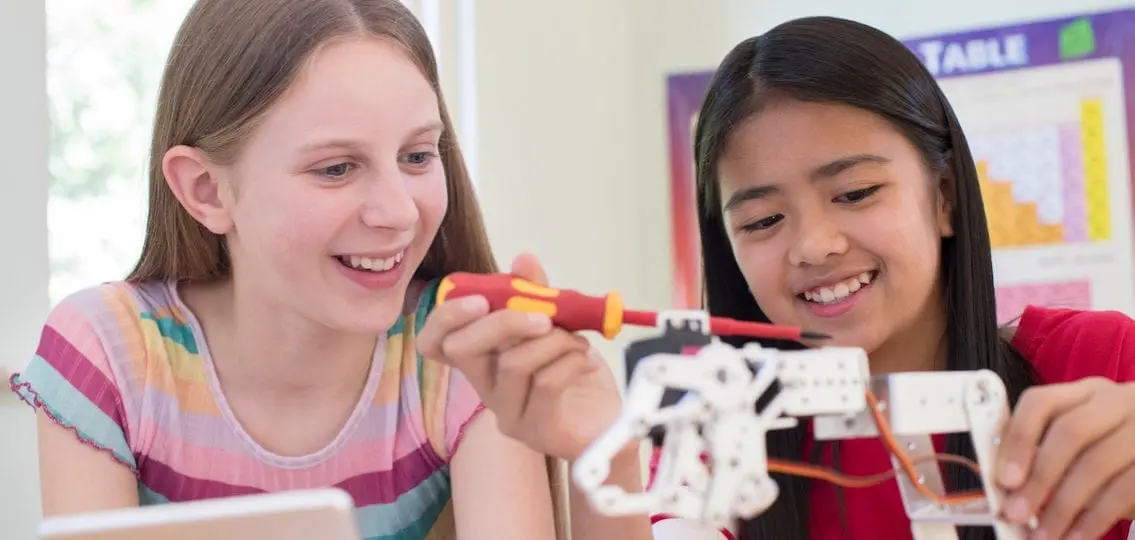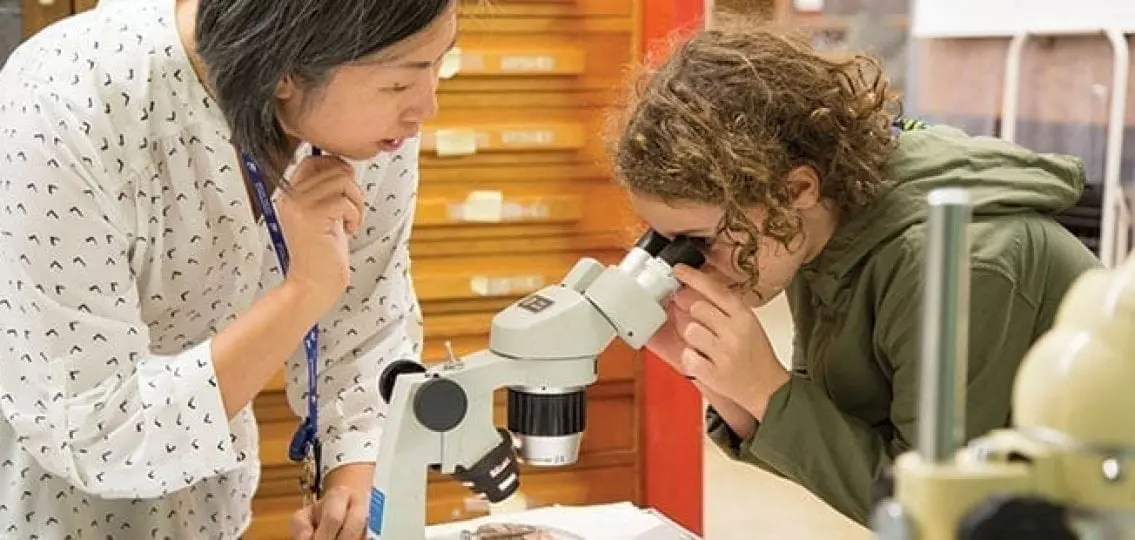“Boys are naturally better than girls at math and science.”
“Science is just too hard.”
“Science is only for geeks and nerds.”

Those are just a few of the misconceptions that prevent girls from exploring a career in the sciences.
As parents, we know better. We know our daughters can achieve anything they set their mind to. The question is: Do they know it, too?
The research is solid: Girls are just as capable as boys when it comes to science, technology, engineering, and math (STEM).
A recent study led by Microsoft shows that while girls become very interested in STEM subjects around age 11, they tend to lose that interest by age 15. Very few regain it: Only 30 percent of the world’s current STEM researchers are women, according to research by the United Nations Educational, Scientific and Cultural Organization (UNESCO).
3 Ways to Encourage Girls to Pursue STEM:
1. Find ways for them to interact with role models.
Isabel Sands, a freshman at Yale University, was the only girl in her AP physics class in her junior year of high school. “I think girls lose interest in science around high school because of a lack of easily visible role models,” she says.
The Microsoft study supports Sands’ hunch. Six in 10 girls said they would feel more confident pursuing a STEM career if they knew that men and women were equally employed in it. As the saying goes: You cannot be what you do not see.
[adrotate banner=”38″]
Denise Su, curator of paleobotany and paleoecology at the Cleveland Museum of Natural History, knows this firsthand. “There aren’t that many women in my field, so most of my mentors were men,” she says. While her male mentors were supportive, she really blossomed in graduate school when she connected with her one and only female mentor, the curator of anthropology for a San Francisco natural history museum.
Just seeing another woman perform the role that Su aspired to was invaluable. “I learned so much from her,” says Su. “She let me explore things on my own and ask questions. When I got my first job interview, she told me to be myself, to stand up straight, what to wear, to have a firm handshake. Things that a male mentor might not have wanted to tell me.”
2. Stress a growth mindset and build confidence.
As an assistant professor, Su noticed that the intelligent young women in her classes doubted their abilities when it came to the sciences. Laura Clapp, also a freshman at Yale, says, “I think girls are surrounded by the message that they aren’t expected to succeed or be interested in science. I remember a boy in middle school telling me that boys are better at math and science than girls. And whenever I told people that AP physics was my favorite course, their reaction was always surprise.”
Parents can help build confidence by stressing a growth mindset, says Tori Cordiano, a clinical psychologist and director of research for Laurel School’s Center for Research on Girls. In the face of defeatist comments, she counsels, “You might respond by saying, ‘You’re right—science is hard, and your brain gets a great workout in that class. Your mistakes on the test can help you figure out how to study next time, and your performance will improve as your studying becomes more effective.’”
3. Provide opportunities fo hands-on exploration.
Research points to one more way parents can help: Allow girls the same time and space to explore and tinker that we give boys. Says Su, “I grew up in an environment where I was encouraged to go outside and climb trees. I spent a lot of time getting dirty and watching nature.”

Su believes hands-on exploration is critical in connecting kids with science. “We need to take science out of that mysterious realm, for boys and girls,” she says. “Anyone can be a scientist. It’s just a different way of interacting with the world.”




